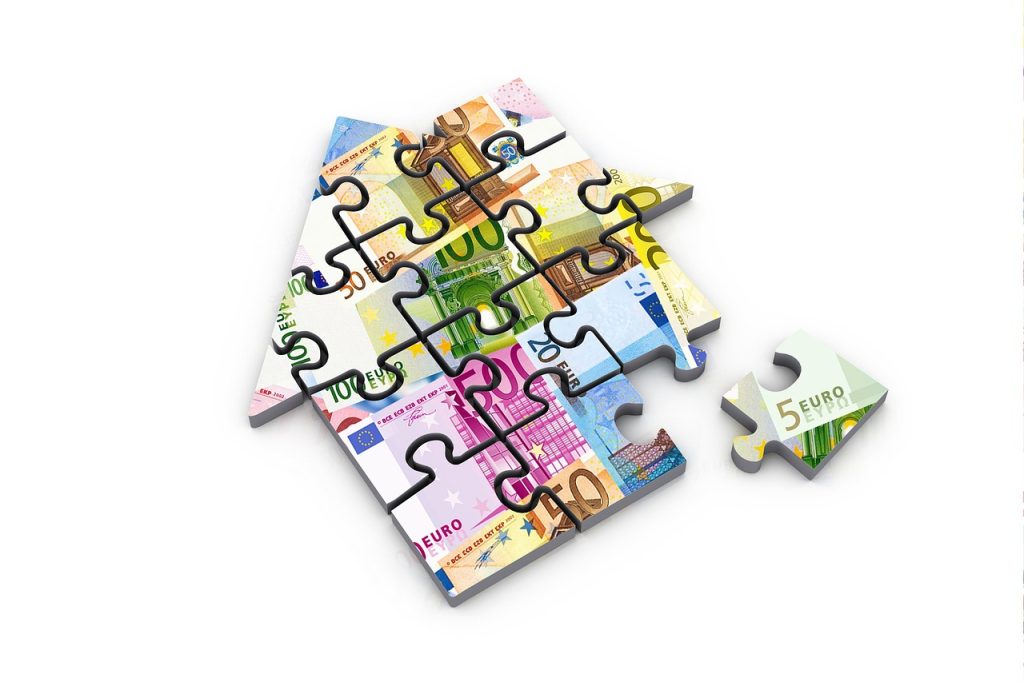Paying off your mortgage early is a dream for many and achievable for a few. But should you use savings to pay off your mortgage?
It may seem like a no brainer on the surface. Mortgage is debt, so if you have savings, you should pay it off, right?
Mostly right. There is a little more to it than that.
As with most things finance, there are pros and cons of paying your mortgage off with savings.
Is paying off your mortgage a good idea?
For the most part, paying off your mortgage is a good idea. It means not having a huge debt hanging over you and could potentially save you many thousands of pounds in interest payments.
There are a couple of things to be aware of though:
Not having a mortgage can impact your credit score
Making mortgage payments on time month after month contributes towards your credit score.
Not having those payments means fewer ‘plus points’ towards your score.
If you’re planning a large credit purchase anytime soon like a new car, you may want to wait until after you have arranged the finance before you pay off the mortgage.
Some mortgage companies charge early repayment fees
Most mortgages allow overpayment, typically 10% per year. Go over that and you may be subject to fees.
Most mortgages will have a redemption fee, a final money grab before they lose you has a source of income. Some companies will also have early redemption fees.
Make sure to ask the mortgage company if there are fees when you ask for a settlement figure.

Using savings to pay off your mortgage
Using savings to pay off your mortgage is usually a good idea if:
- Your mortgage interest is higher than your savings interest
- You won’t be charged any excessive early redemption fees
- Using up your savings won’t leave you exposed
Let’s take a quick look at all those points.
Your mortgage interest is higher than your savings interest
If your mortgage interest rate is higher than you’re getting with your savings, it can make financial sense to pay off your mortgage.
If the reverse is true, your savings interest is more than your mortgage interest, you may be better off keeping your savings.
You won’t be charged any excessive early redemption fees
As I mentioned above, some mortgage companies charge early redemption fees on some mortgages. That’s especially true if you’re in a fixed interest period or within a special offer period.
Make sure the fee being charged is reasonable, otherwise you may be better off sticking with it for a while.
Using up your savings won’t leave you exposed
Having savings is a literal lifesaver. Using those savings to pay off the mortgage can be a good idea as long as you have some left over.
Emptying your savings pot to clear the mortgage isn’t usually a good idea.
You know as well as I do that as soon as you use all your savings, something will happen that requires an injection of cash!
Pros and cons of paying off your mortgage with savings
As I mentioned at the top, there are pros and cons of paying off your mortgage with savings.
Pros include:
Settle your largest debt – Most of us have mortgages and will have until we retire. Paying it off can set you free in ways you cannot yet imagine. It’s a genuine weight off your shoulders.
Save money in interest – Overpaying and settling a mortgage early can save you thousands, or even tens of thousands of pounds in interest. That’s money better off in your pension pot than on a company profit sheet.
More money to yourself each month – Now you’re not paying a mortgage, you have more money to play with. You could save more, buy that car you always wanted, take more holidays and put more into your pension or savings.
You no longer need to worry about interest rates – Waiting for the monthly Bank of England meeting to decide interest rates is now a thing of the past. No need to track the economy, no need to watch interest rates and no need to sigh sadly when you see how much you pay in interest each month.
Cons include:
Uses up savings – Use savings to pay off your mortgage will obviously reduce how much you have put away. That’s fine if you have plenty left over but could leave you exposed.
Sometimes boosting savings or pension makes more sense – If you have a low interest mortgage, it may make more sense to boost your pension or keep the money in savings instead.
Your credit score will gradually drop – Your credit score is a measure of how good you are with debt. If you don’t have debt, there’s nothing to score you on. This will inevitably result in a gradual decline in your credit score unless you maintain it in other ways.
How do you pay off your mortgage early? How does it work?
If you decide to pay off your mortgage early, it’s very straightforward to do.
Contact your mortgage provider and ask for a settlement figure. This will be the total amount outstanding plus the mortgage redemption fee.
The provider will give you an account to pay the money into and will usually request using your mortgage account number as the payment reference.
Make the payment into the designated account following their instructions.
The provider will contact you to acknowledge the payment and will probably say they will settle the mortgage once they are sure payment has cleared.
Once cleared, the provider will write to you again acknowledging you have paid off your mortgage and settled your account in full.
They will then notify the Land Registry and remove their charge from your property. This just tells everyone there is no longer a mortgage and your home is now your own.
There may be a final acknowledgement, telling you the charge has been removed and Land Registry informed. But there may not.
Paying off your mortgage early
On balance, using savings to pay off your mortgage early is usually beneficial.
As long as mortgage interest is higher than savings interest, settling the mortgage won’t wipe out your savings or you wouldn’t be better off boosting your pension that is.
For a decision as important as this, I would recommend discussing it with your financial adviser or someone you trust first.
You can’t be too careful after all!

